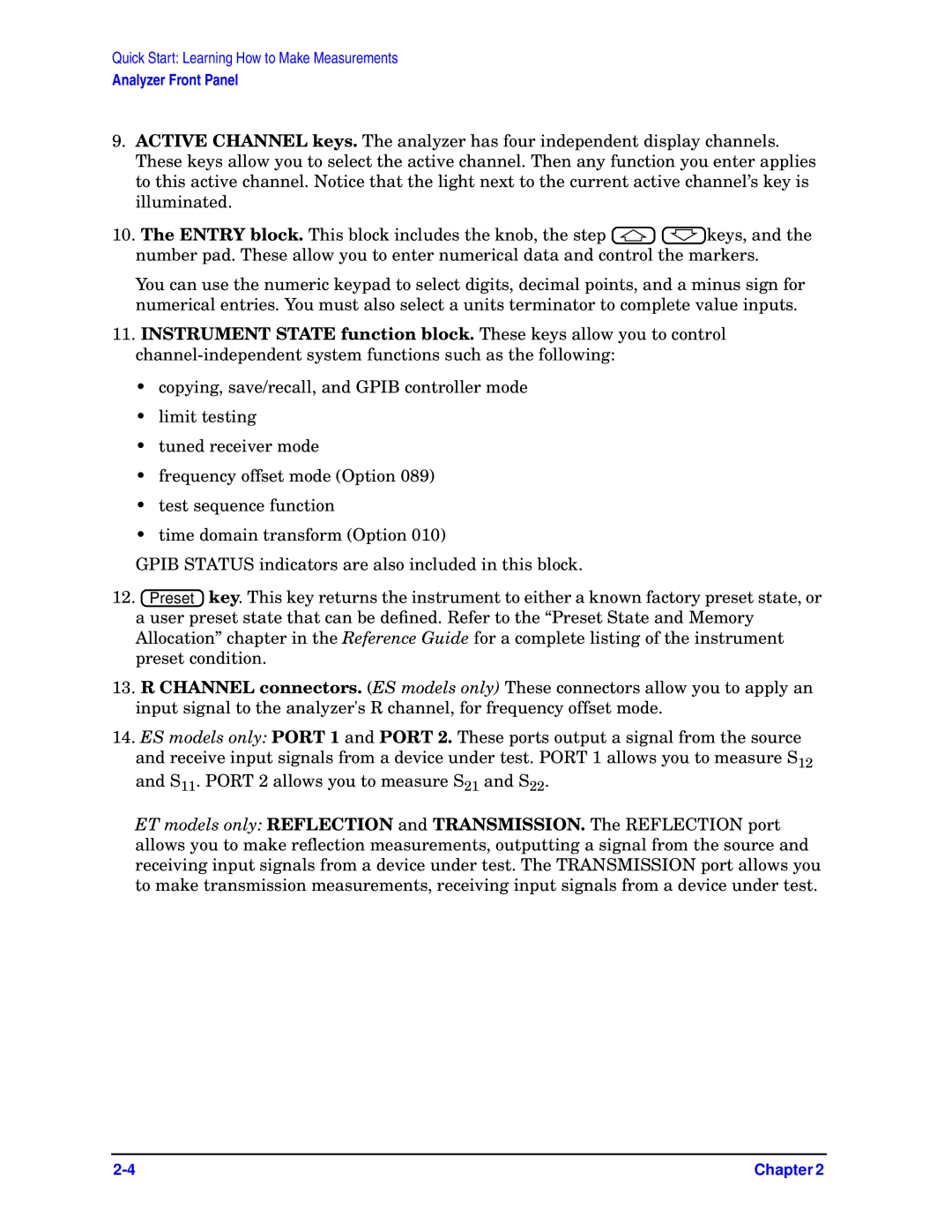
Quick Start: Learning How to Make Measurements
Analyzer Front Panel
9.ACTIVE CHANNEL keys. The analyzer has four independent display channels. These keys allow you to select the active channel. Then any function you enter applies to this active channel. Notice that the light next to the current active channel’s key is illuminated.
10.The ENTRY block. This block includes the knob, the step ![]()
![]()
![]()
![]()
![]() keys, and the number pad. These allow you to enter numerical data and control the markers.
keys, and the number pad. These allow you to enter numerical data and control the markers.
You can use the numeric keypad to select digits, decimal points, and a minus sign for numerical entries. You must also select a units terminator to complete value inputs.
11.INSTRUMENT STATE function block. These keys allow you to control
•copying, save/recall, and GPIB controller mode
•limit testing
•tuned receiver mode
•frequency offset mode (Option 089)
•test sequence function
•time domain transform (Option 010)
GPIB STATUS indicators are also included in this block.
12.![]() Preset
Preset ![]() key. This key returns the instrument to either a known factory preset state, or a user preset state that can be defined. Refer to the “Preset State and Memory Allocation” chapter in the Reference Guide for a complete listing of the instrument preset condition.
key. This key returns the instrument to either a known factory preset state, or a user preset state that can be defined. Refer to the “Preset State and Memory Allocation” chapter in the Reference Guide for a complete listing of the instrument preset condition.
13.R CHANNEL connectors. (ES models only) These connectors allow you to apply an input signal to the analyzer's R channel, for frequency offset mode.
14.ES models only: PORT 1 and PORT 2. These ports output a signal from the source and receive input signals from a device under test. PORT 1 allows you to measure S12 and S11. PORT 2 allows you to measure S21 and S22.
ET models only: REFLECTION and TRANSMISSION. The REFLECTION port allows you to make reflection measurements, outputting a signal from the source and receiving input signals from a device under test. The TRANSMISSION port allows you to make transmission measurements, receiving input signals from a device under test.
Chapter 2 |
